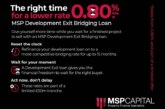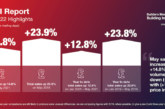
Jo White from Kreston Reeves explores the differences between investment companies and trading companies, revealing that this can have significant consequences when you want to sell a business.
In our last article we touched on the practical considerations of preparing a business for sale. In this we look at the tax reliefs available on sale and how property developers can inadvertently lose out.
Entrepreneurs’ Relief
Entrepreneurs’ Relief is a Capital Gains Tax relief potentially allowing up to £10m of gains to be taxed at a rate of 10%.
When looking at the disposal of shares in a company, one of the requirements of the relief is that the shares being disposed of are in a ‘personal’ trading company. This generally rules out listed companies, although not those listed on AIM.
Entrepreneurs’ Relief considers a trading company to be one that doesn’t carry out investment activities to a substantial amount, this is no greater than 20% in the context of asset value, income, profitability and time spent.
Property investment companies are not trading for the purposes of Entrepreneurs’ Relief as the receipt of rental income is considered an investment activity. Property development companies, however, are regarded as trading, yet this position can easily become blurred where unsold properties are retained for letting.
Documenting the reason for holding surplus stock is therefore vitally important. HMRC will assess the intention of the directors comparing against market conditions. Shorter term lets will help demonstrate that the investment activities are incidental to the main trade, although this factor alone does not mean HMRC will agree the company is trading.
Cash reserves
Another issue facing property companies is that they may, over time, have built up substantial cash reserves, with the value of investment forming more than 20% of the balance sheet value of the company.
It is recognised that certain companies will need to keep back working capital because of the nature of their business, and HMRC’s view is to consider the underlying nature of those investments in deciding whether there is an investment activity.
One of the requirements is that the company must have been a trading company throughout the 24 months leading up to the disposal: simply distributing cash shortly before a sale, or stopping letting the surplus properties, will not be a solution if the company is susceptible to an investment activity argument.
Business Property Relief
Business Property Relief (BPR) is another valuable relief this can reduce the amount of Inheritance Tax due on a chargeable transaction whether a lifetime gift or on death. Shares qualifying for BPR can receive 50% relief where the relevant holding is a controlling interest in a quoted company or 100% relief for unquoted trading or AIM listed company shares.
The definition of trade is different to that for Entrepreneurs’ Relief. For BPR purposes, the company must not be “engaged wholly or substantially in the making of investments”, with substantial interpreted as being greater than 50%.
Factors relating to Entrepreneurs’ Relief also apply to BPR. In some cases, however, it may not be possible to claim BPR on the whole of the share value due to the non-trading nature of certain assets. Furthermore, the shares in the company must have been owned by the individual for at least two years for BPR to be pertinent.
The trading versus investment argument is complex. Advice should always be taken before making decisions that inadvertently change your tax position.









